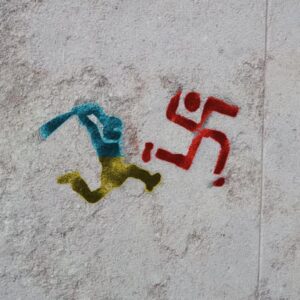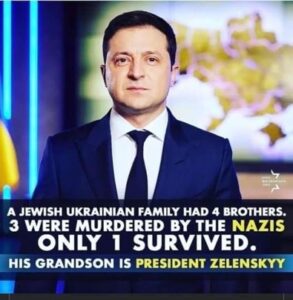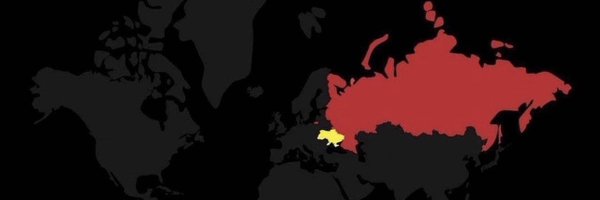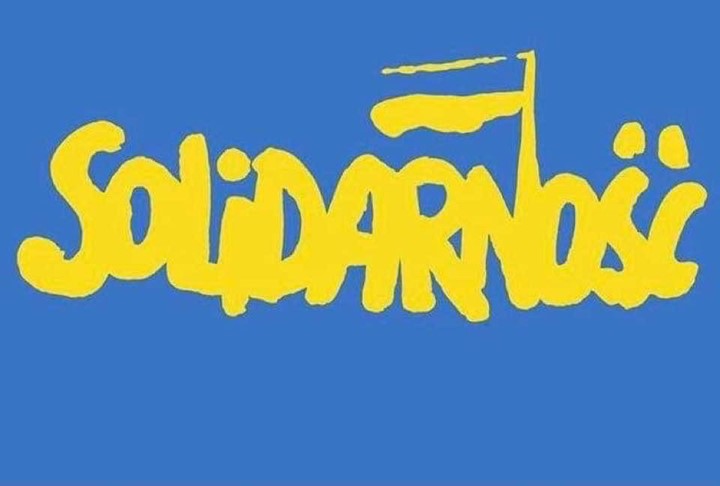For anybody trying to keep track of the war this is an extraordinarily useful resource from Bellingcat. Follow the Russia-Ukraine Monitor Map https://t.co/M5IaHtWjgQ
— Lawrence Freedman (@LawDavF) March 6, 2022
Millions of lives could be destroyed to slake Vladimir Putin’s Cold War obsession. Less than three weeks into Russia’s invasion of Ukraine — a historic outrage 30 years in the making — the world is looking on in horror at the barbarity, human tragedy, appalling destruction and worldwide reverberations sparked by one man’s orders, CNN reports:
Ukraine’s fate starkly underlines that even 20 years into the 21st century and despite the world’s vows to learn from history, a lone autocrat who has ruthlessly fashioned a political system to eliminate dissent and reality itself has the power to cause unfathomable human loss and misery. Putin’s apparent willingness to bombard Ukraine into submission and clearly gratuitous targeting of the innocent civilians he insisted are Russian kin mean the humanitarian disaster is likely only just beginning.
 If Ukraine’s democracy survives, it will crush the arguments of the tyrants who depict democracies as weak, incapable, chaotic, says Ukrainian author and journalist Nataliya Gumenyuk, founder of the Public Interest Journalism Lab. The question is: How many Ukrainians will have to die in the process? In the meantime, Ukrainians are engaged in democracy in action, with people of all classes supporting one another, she writes for The Post:
If Ukraine’s democracy survives, it will crush the arguments of the tyrants who depict democracies as weak, incapable, chaotic, says Ukrainian author and journalist Nataliya Gumenyuk, founder of the Public Interest Journalism Lab. The question is: How many Ukrainians will have to die in the process? In the meantime, Ukrainians are engaged in democracy in action, with people of all classes supporting one another, she writes for The Post:
A 82-year-old pensioner donated his savings to the army …. Ukrainian pop artists are recording videos on Instagram and Tik Tok, appealing to their fans in Belarus and Russia to stop the war. …. IT specialists have developed applications that issue air-raid alerts for each region — responding to a call by the Ministry for Digital Transformation, run by a guy who was born in 1991, the year the U.S.S.R. collapsed. A hipsterish shoe company has switched to making combat boots…..
‘Regular, normal people’
Ukrainians are giving two lessons in democracy that Americans have forgotten, CNN’s
- The most ferocious defenders of democracy are those who have been denied it…. Freedom tastes sweeter for those who have never had it.
 Ordinary people are the true heroes of democracy…. This power of ordinary people is what Zelensky evoked when he appealed to Russian and Ukrainian people before the invasion. He said one group could ultimately prevent war: “Regular people. Regular, normal people.”
Ordinary people are the true heroes of democracy…. This power of ordinary people is what Zelensky evoked when he appealed to Russian and Ukrainian people before the invasion. He said one group could ultimately prevent war: “Regular people. Regular, normal people.”
“Western countries don’t have this type of leadership anymore: unembarrassed, defiant belief in a cause,” Tom McTague wrote in a recent Atlantic essay.
Ukrainians have been our instructors and inspirers. We owe them such a debt. They have reminded us not only what it looks like to believe in democracy, the liberal order and national honor but also to act bravely on behalf of these things, David Brooks writes for The NY Times:
The creed of liberalism is getting a second wind. There’s a school of academic realists who imagine that foreign affairs is all about cold national interest, conducted by chess master strategists. But this week we saw that foreign affairs, like life, is a moral enterprise, and moral rightness is a source of social power and fighting morale.
 Ukraine is “acting as a shield for the entire democratic world,” Parliamentarian Kira Rudik (below) told a Washington fundraiser for Razom. “The worst thing is fighting against time,” she added. Ukrainians are “dying to buy time for others to make decisions.”
Ukraine is “acting as a shield for the entire democratic world,” Parliamentarian Kira Rudik (below) told a Washington fundraiser for Razom. “The worst thing is fighting against time,” she added. Ukrainians are “dying to buy time for others to make decisions.”
“Peaceful negotiations”:
Rd 1: Kharkiv attacked, TV tower in Kyiv bombed;
Rd 2: Nuclear plant bombed, Mariupol destroyed;
+ 2 times not letting out evacuation convoy
Rd 3: ?#StopRussianAggression #StopPutinNOW @GBnews pic.twitter.com/KIiMoaSikG— Kira Rudik (@kiraincongress) March 7, 2022
Existing pledges on the part of Western democracies to provide Ukraine with antitank weapons, man-portable air defense systems, small arms, body armor, and munitions are necessary but insufficient to meet the demands of the battlefield, according to Alexander Vindman and Dominic Cruz Bustillos.
Western democracies have the necessary resources to close the gap [in resources] and ensure that Ukraine prevails. Washington and its allies should establish a lend-lease program modeled on the one that provided arms and assistance to U.S. allies in Europe during World War II, they write for Foreign Affairs.

“Each passing day adds more stories that Ukrainians will tell not only in the dark days ahead, but in the decades and generations to come,” the author and historian Yuval Noah Harari said in a recent essay. “This is the stuff nations are built from. In the long run, these stories count more than tanks.”
Things may be grim on the ground but at least NYT columnist Thomas Friedman’s global ad hoc pro-Ukraine-resistance-solidarity-movement is starting to kick in. Of the sanctions, boycotts and pressure points coming from the super-empowered nonstate actors, his favorite is Jack Sweeney, a 19-year-old University of Central Florida student who created a Twitter account – @RUOligarchJets, or Russian Oligarch Jets – that tracks the private jets of Russian billionaires close to Putin. [He’s also started @RussiaYachts – see below].
 The spontaneous grass roots solidarity with Ukraine was evident from football/soccer fans across the UK and Europe over the weekend (right).
The spontaneous grass roots solidarity with Ukraine was evident from football/soccer fans across the UK and Europe over the weekend (right).
We need to make it clear to Vladimir Putin that he will never, ever win this war; that he can seize ground but will never hold it, analyst Bret Stephens writes for The New York Times:
- We should provide the Ukrainian Army with real-time surveillance of Russian Army movements, if we aren’t already.
- We probably won’t impose a no-fly zone, but we should organize a humanitarian Kyiv airlift, like the Berlin airlift of 1948 and 1949, so that Putin can’t starve the city into submission.
- We should arm Ukrainian soldiers with anti-tank missiles (an effort that has already begun), antiaircraft missiles, sniper rifles, ammunition and body armor.
- We should set up bases in Poland and Romania to train Ukrainian partisans for a long guerrilla war.
- We should warn Russia that we will sanction its entire energy sector if it conquers Kyiv or kills President Volodymyr Zelensky.
The hardware of the Russian invasion may well be operational but the software of its narrative has seized up, historian Simon Schama writes for The Financial Times. Whatever power the Putinite autocracy might have over Russian reception of the “story”, evidence flooding the internet makes the targeting of civilians indelibly clear.
Keeping tabs on war crimes
 Just before the invasion, Bellingcat’s Eliot Higgins was busy exposing bogus social media posts that painted Ukrainians as the aggressors to justify Russia’s intervention, The [London] Times reports.
Just before the invasion, Bellingcat’s Eliot Higgins was busy exposing bogus social media posts that painted Ukrainians as the aggressors to justify Russia’s intervention, The [London] Times reports.
“What’s particularly surprised me with the disinformation from the Russian side is how poor quality it is — and how we’ve managed to quickly debunk so many serious allegations, including confirming that videos of supposed Ukrainian attacks are fabrications,” he says. “After so many years of calling out Russian fakes, I honestly thought they’d have learnt something, but so far it appears they’ve regressed.”
Bellingcat is now collecting videos showing troop movements in Ukraine: “If there’s a war crime, we’ll want to know where these different units were when it occurred. There have been cases where from one video we’ve managed to get people prosecuted for murder.”
In response to the Russian threat, there have been unprecedented efforts by private and government entities – and even individuals – to support Ukraine’s cyber resilience, according to Joyce Hakmeh and Esther Naylor, experts with the International Security Program at Chatham House. Building national cyber resilience requires a whole-of-society approach grounded in international cooperation efforts, they write for The Guardian:
 For the first time since its inception, the EU rapid cyber response team …was deployed to help defend against cyber-attacks targeting Ukraine. The Romanian national cybersecurity agency and a cybersecurity company called Bitdefender launched a public-private partnership to provide pro bono technical support and threat intelligence for “as long as it is necessary”….The tech community leveraged its resources and knowledge to expose cyber-attacks and threats, and limit their spread. Shortly after WhisperGate, Microsoft shared technical analysis on the tools and techniques used in the attack and recommendations for those affected…. Slovakia-based cybersecurity firm ESET exposed the nefarious component of the Hermetic Wiper malware attacks, a malware designed with a component aimed at “wiping” data out of systems.
For the first time since its inception, the EU rapid cyber response team …was deployed to help defend against cyber-attacks targeting Ukraine. The Romanian national cybersecurity agency and a cybersecurity company called Bitdefender launched a public-private partnership to provide pro bono technical support and threat intelligence for “as long as it is necessary”….The tech community leveraged its resources and knowledge to expose cyber-attacks and threats, and limit their spread. Shortly after WhisperGate, Microsoft shared technical analysis on the tools and techniques used in the attack and recommendations for those affected…. Slovakia-based cybersecurity firm ESET exposed the nefarious component of the Hermetic Wiper malware attacks, a malware designed with a component aimed at “wiping” data out of systems.
Now I’ve set up @RussiaYachts not automated yet but we’ll be keeping watch and posting updates. https://t.co/QdciPnHofh
— Jack Sweeney (@JxckSweeney) March 6, 2022








